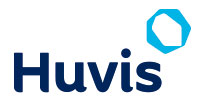Announcement
|
Huvis concludes a deal with Indorama Ventures for setting up a joint venture in US 2018.06.26 |
|
| File |
No file. |
|
▶ They possess a 50:50 stake through their respective subsidiary
▶ An LMF plant with annual capacity of 60,000 tons to be established in US ▶ Expected to induce growth with solid upward growth trend and US pro-business policy  On June 19, Huvis (CEO Shin, You Dong 079980), a company specializing in chemical materials, announced that it has signed a contract with Indorama Ventures, PCL, a global petrochemical material supplier listed on the Thai stock exchange. The purpose of the agreement is to set up a joint venture, Huvis Indorama Advanced Materials, LLC, in the US, effective from June 18. Both companies reached a final agreement based on the agreement framework they had signed in January. Huvis possesses a 50% stake in the joint venture through Huvis Global, its subsidiary for overseas investment that was established in April. Indorama Ventures holds a 50% stake through Auriga Polymers Inc., a subsidiary producing and selling chemical materials in the US. On June 19, Huvis (CEO Shin, You Dong 079980), a company specializing in chemical materials, announced that it has signed a contract with Indorama Ventures, PCL, a global petrochemical material supplier listed on the Thai stock exchange. The purpose of the agreement is to set up a joint venture, Huvis Indorama Advanced Materials, LLC, in the US, effective from June 18. Both companies reached a final agreement based on the agreement framework they had signed in January. Huvis possesses a 50% stake in the joint venture through Huvis Global, its subsidiary for overseas investment that was established in April. Indorama Ventures holds a 50% stake through Auriga Polymers Inc., a subsidiary producing and selling chemical materials in the US.Huvis plans to complete the establishment of the US joint venture in June and then establish a cutting-edge plant for low melting fiber (LMF) with an annual capacity of 60,000 tons. The plant will be set up based on the manufacturing process of Huvis, who is the world's No.1 LMF leader in terms of global market share, with an aim to complete the construction and commence with commercial production in the second half of next year. The joint venture will begin sales first in the US based on Huvis' customer base, then expand to other parts of North America, including Mexico and Canada. Indorama Ventures, the partner for the joint venture, is a global company with annual revenue of as much as 9 trillion won, which has been growing rapidly through joint ventures and M&As with global leaders in various business areas, including polymers and fibers. Having a wide global supply chain including 75 plants in 25 countries, Indorama Ventures plans not only to provide raw materials and production infrastructure to the joint venture to ensure competitive pricing but also to provide its know-how of global operations to support it as a means to secure the highest possible cost competitiveness. Experts in the market have indicated that the global chemical fiber industry as a whole is paying close attention to the potential impact of the joint project of the two companies and how it could propel the global chemical materials market with their respective strengths. LMF, a fiber for adhesives as an alternative to chemical bonds, is used mainly for high-value materials, including automotive interior/exterior materials, insulators and filters, and the market has solidly grown at an annual rate of approximately 8% in the US. For the automotive LMF market, global automakers including Toyota and BMW are currently expanding their investment in local production as the Trump administration is considering levying tariffs on import cars, and this is expected to accelerate the growth of the LMF market in North America. In addition, the recent federal corporate income tax rate cut to 21% and the recent pro-business US policy such as the tax benefits introduced to attract foreign-invested enterprises are expected to significantly help the joint venture reinforce its cost competitiveness. "We have had intense negotiations with the global company Indorama Ventures over the past number of months and finally concluded the deal that could help realize a win-win relationship between the two companies," stated Huvis CEO Shin You-dong. "By establishing the joint venture, Huvis could step off on the right foot with regards to our shift to the glocalization model in major chemical materials markets such as the US, China and Europe. In addition to LMF, we will also speedily establish a strategic partnership with Indorama for other chemical materials to solidify our leadership in the global differentiated fiber market." ** Glocalization : As a portmanteau of globalization and localization, glocalization is a business technique that simultaneously carries out both globalization and localization strategies. Companies pursuing glocalization conduct business activities targeting the global market while at the same time using local strategies reflecting local culture, customer characteristics and needs. |
|

